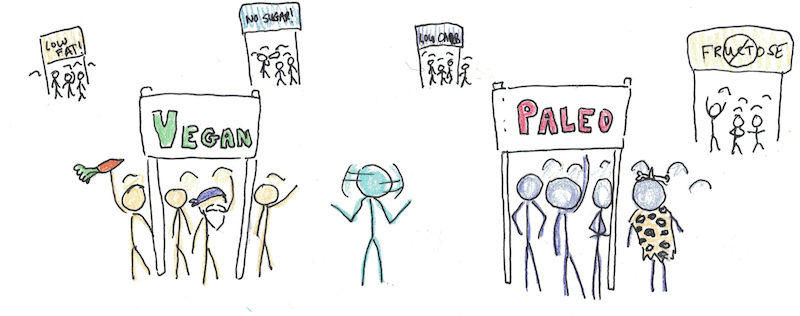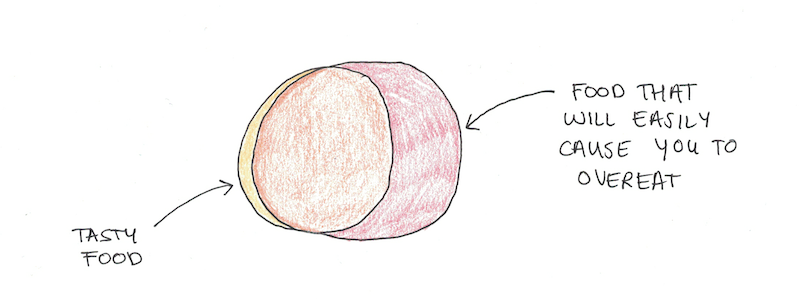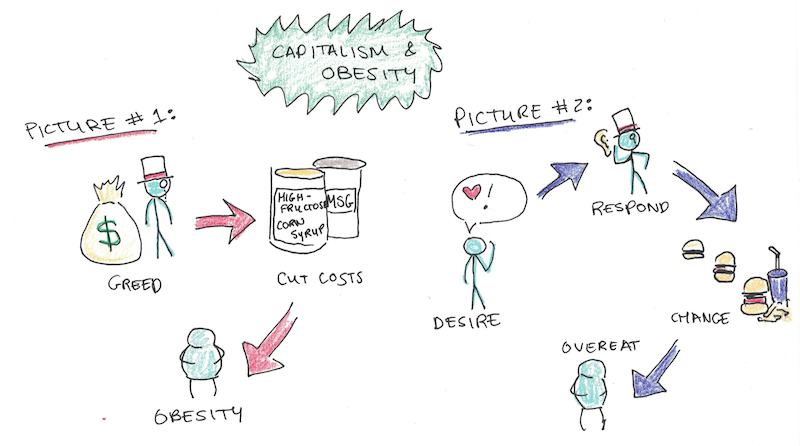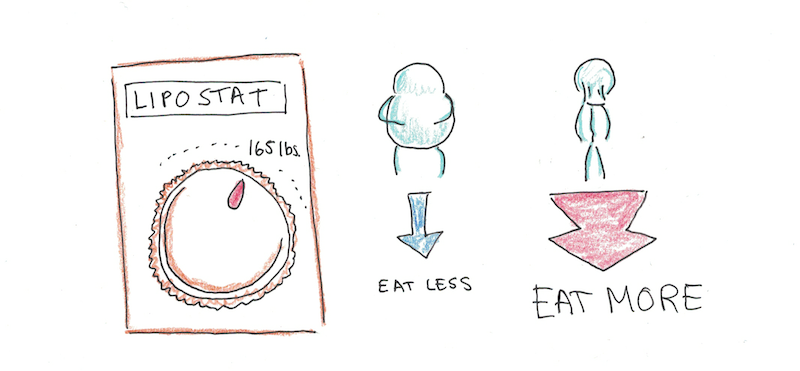Most diet books are about food. The Hungry Brain, by neuroscientist and obesity researcher Stephan Guyenet, is fascinating because it is about behavior.
The brain, Guyenet argues, is the most important part of the body if we want to understand why we gain weight and how we lose it.
Nutrition is one field I struggle to follow, because there’s a lot of noise. Millions of breathless news headlines scream at you that you need to cut fat, cut carbs, go vegan, go paleo, reduce cholesterol, reduce trans fats, reduce everything. In the end, there’s too much advice, often pointing in mutually opposing directions to make a well-informed decision.

Guyenet’s book was refreshing because it puts the science first: admitting what we don’t know, evaluating what we do, and not offering an easy solution just because that’s the one which sells.
The Hungry Brain is also fascinating because it focuses on how our brain mechanisms regulate eating behavior, and how these can get misaligned in a modern world to cause us to overeat.
We’re Fat Because Food is Too Tasty
If I could crudely summarize Guyenet’s message it would be: we’re fat because food tastes too good.

Tasty, convenient food triggers complex brain circuits that cause us to want to eat far more calories than we need to sustain our weight. This kind of food occurred seldomly in our ancestral environment, and when we did encounter it, overeating was probably an adaptive response. Fresh fruit and honey will spoil or be stolen, so you’d better eat it now.
The problem is that we live in a world where tasty, convenient food is everywhere. Thus the same adaptive brain circuits from our ancestors are now firing all the time.
The challenge that this presents is that, unlike some diets which blame obscure food properties, such as gluten, monosodium glutamate or saturated fats, this puts the blame squarely on how appealing we find food itself.
Given a bland diet, with limited food reward, and overweight research participants dramatically lower their food intake, rapidly losing weight. Give slim participants easy access to junk food and they overeat immensely.
Capitalism and Obesity
A frequently named culprit of our obesity problems is the fast food industry. Giant corporations and restaurant chains conspire to give us ever-fattening food. Often this is blamed on cost-saving measures, say from using GMOs, antibiotics or high-fructose corn syrup.
This narrative would suggest that if we could simply restrain these greedy companies, our weight loss woes would go away.
In the view presented by Guyenet, we might still want to blame capitalism for obesity, but rather than it coming from corporations undermining our true desires, we’re getting fat because a competitive marketplace has been extremely successful in giving us what we really want. What we want are convenient foods which have the high food reward our ancestors craved.

The solution: making food less tasty, or less convenient, is going to be a hard sell. As a result, our finger-pointing tends to obscure this fundamental issue, pretending we can somehow have quick, delicious food, without the costs.
The Brain Circuits that Make Us Fat
Guyenet spends much of the book explaining some of the principle brain circuits that drive obesity.
One of these is the lipostat, centered in the hypothalamus, which controls our hunger levels in response to changing body fatness. Our fat tissues release a hormone, leptin. When we lose fat, this hormone declines, and hypothalamic circuits switch on a “starvation response.” We become obsessed with food, and need to eat a lot more to feel full, until we can regain the lost fat.

A problem with modern diets is that our lipostat will guard very strongly against weight loss, but is rather less effective about causing us to lose weight after we gain weight. As a result, having gained a lot of weight, and rapidly losing it, tends to provoke a starvation response even if the new weight is a much healthier one.
Another set of brain circuits are found in the brain stem. These circuits control the feeling of fullness. More calorie-dense, tastier foods tend to make us feel less full, for the same amount of calories.
Other circuits in the brain respond not only to food reward, but food variety. In this sense, our market economy, with its dizzying array of food choices itself can create a problem. While we may get tired of just eating one food, researchers can provoke overeating by giving full participants access to new food. In a sense, providing the scientific explanation for the intuitive feeling we have that there’s always more room for dessert.
What Should We Do to Stay Healthy?
The Hungry Brain focuses on science, but it also comes with many suggestions for staying in shape:
- Eat a smaller variety of food (to feel full with less).
- Eat a blander diet.
- Make eating food more difficult (through cooking, less fast food or prepared foods).
- Avoid holiday overeating binges (which may create a “ratcheting” effect of weight gain over time).
- Eat more protein. (Low-carb diets may work through this mechanism, by increasing protein we feel full more easily and it may lower the fatness set point.)
Exercise, while not universally positive (because it can increase appetite) is generally beneficial because it may adjust the amount of body fatness your brain wants to maintain. In this sense, you lose weight from exercising not simply because of the calories burned, but because if you’re overweight, your brain circuits may want you to be leaner, causing you to eat less.
What is interesting about this advice is that it puts front-and-center the modern trade-off. If we’re too fat because food is too tasty and convenient, then losing weight and keeping it off tends to become about making our food somewhat less rewarding or convenient.
Successful diets, whether they be low-carb, low-fat, paleo or vegan, tend to work by indirectly making food less rewarding or convenient. These aren’t negative side-effects of these diets, but the principal mechanism by which they work.
This may not be the message that people want to hear, but it’s the right one. Everyone wants to believe they can be rich without work, committed without constraints or thin without giving up tasty foods. Life, however, is full of trade-offs. Know them, so you can choose wisely.

 I'm a Wall Street Journal bestselling author, podcast host, computer programmer and an avid reader. Since 2006, I've published weekly essays on this website to help people like you learn and think better. My work has been featured in The New York Times, BBC, TEDx, Pocket, Business Insider and more. I don't promise I have all the answers, just a place to start.
I'm a Wall Street Journal bestselling author, podcast host, computer programmer and an avid reader. Since 2006, I've published weekly essays on this website to help people like you learn and think better. My work has been featured in The New York Times, BBC, TEDx, Pocket, Business Insider and more. I don't promise I have all the answers, just a place to start.